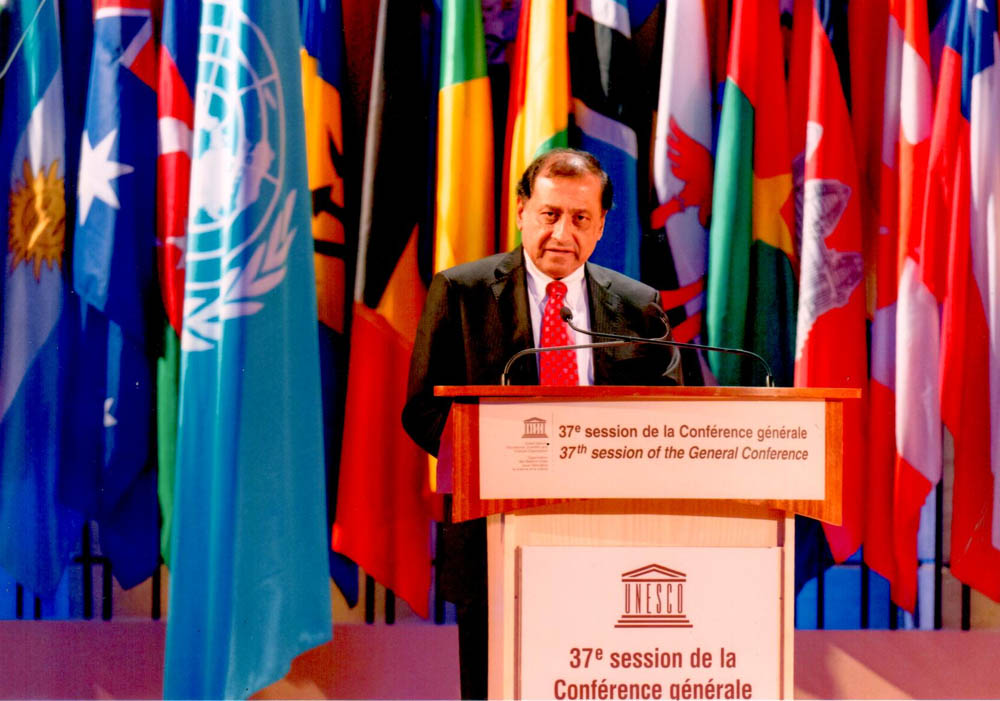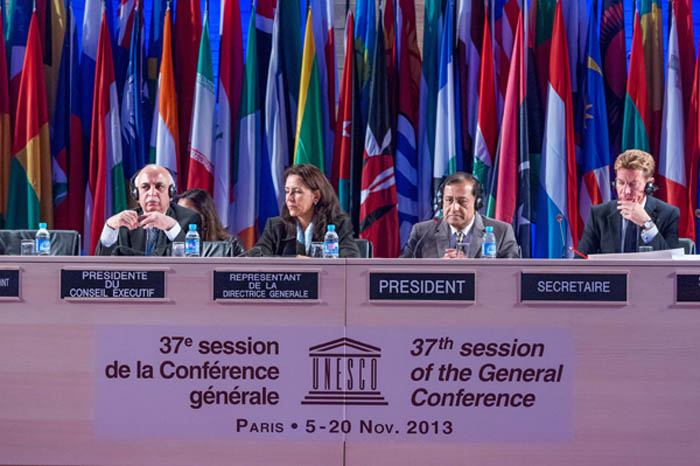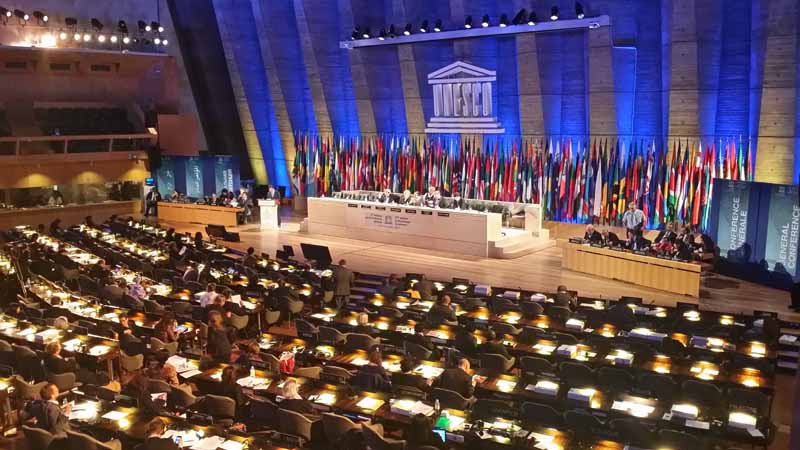
Sri Lanka’s Ambassador to UNESCO, Professor Karunaratne Hangawatte was unanimously elected as a Vice President of the 37 th session of the General Conference of the United Nations Educational, Scientific and Cultural Organization (UNESCO) at the inaugural plenary session on 5 th November 2013 in Paris. In the afternoon of 8 th November 2013, Ambassador Hangawatte chaired the General Policy Debate of the General Conference at which several Ministers of Education, Higher Education, Culture and Science took the floor to present their respective National Statements.

Sri Lanka’s Ambassador to UNESCO, Professor Karunaratne Hangawatte was unanimously elected as a Vice President of the 37 th session of the General Conference of the United Nations Educational, Scientific and Cultural Organization (UNESCO) at the inaugural plenary session on 5 th November 2013 in Paris. In the afternoon of 8 th November 2013, Ambassador Hangawatte chaired the General Policy Debate of the General Conference at which several Ministers of Education, Higher Education, Culture and Science took the floor to present their respective National Statements.
Ambassador Karunaratne Hangawatte, who is leading the Delegation of Sri Lanka to this biennial session of the General Conference highlighted the socio-economic achievements of the country while providing a detailed overview of the advancements that have occurred in Sri Lanka across the many areas of relevance to UNESCO.

Delivering the National Statement of Sri Lanka at the General Policy Debate on 7 th November 2013, Ambassador Hangawatte articulated many initiatives adopted by Sri Lanka to promote religious understanding and intercultural dialogue through social cohesion and a culture of peace and non-violence. He stressed that the inherent attributes of compassion, understanding and caring for the other, had seen the reintegration into society of former combatants who took up arms against the state and her people. Ambassador Hangawatte noted that “ it wasn’t by punitive measures that Sri Lanka opted to respond to former combatants but instead it was through compassion, inclusion and following the middle path .”
Emphasizing the significance of the development of human capital under the National Policy Framework of the Mahinda Chinthana, he noted the policies adopted to make Sri Lanka a knowledge hub. From the formulation of the National Policy on Early Childcare and Development to the 5000 ‘Child Friendly Schools’ being established across the country by 2015 as well as the key dividend of drastic reductions in unemployment to 4.4% and Sri Lanka enjoying the highest literacy rate of 98% in South Asia, through all of which the country had achieved much in the sphere of education.
Reiterating President Mahinada Rajapaksa’s call for the declaration of an International Skills Day, Ambassador Hangawatte stressed the intrinsic value of vocational and technical training and the introduction of the technological stream under the theme of “ Education for the World of Work ” which provides opportunities for graduate studies and employable school leavers.

The role of youth, their contributions to society and the potential and power of the voice of the youth were noted, especially in light of the Commonwealth Youth Forum and the United Nations World Conference on Youth scheduled to take place in Sri Lanka in May 2014.
Reflecting on the scope of information and communication, Sri Lanka’s Ambassador to UNESCO explained the manner in which youth and especially rural youth were being equipped with language and Information Technology skills under the National development Policy Framework, through an integrated network of 720 telecentres, known as ‘ Nenasalas ’.
Noting the scientific advancements in Sri Lanka Ambassador Hangawatte mentioned the UNESCO feasibility study which had given a fresh impetus to one of the founding goals of the Sri Lanka Institute of Nanotechnology. Sri Lanka’s first ever Nanotechnology and Science Park and the Nanotechnology Centre of Excellency had marked milestones in the national strategy of taking Sri Lanka towards upper middle income country status.
Appreciating the effort and commitment of the Director General Irina Bokova in steering UNESCO over the last four years and the endorsement she received in being re-elected by the Executive Board, Ambassador Hangawatte expressed the desire of closer ties between Sri Lanka and UNESCO in the years ahead.




